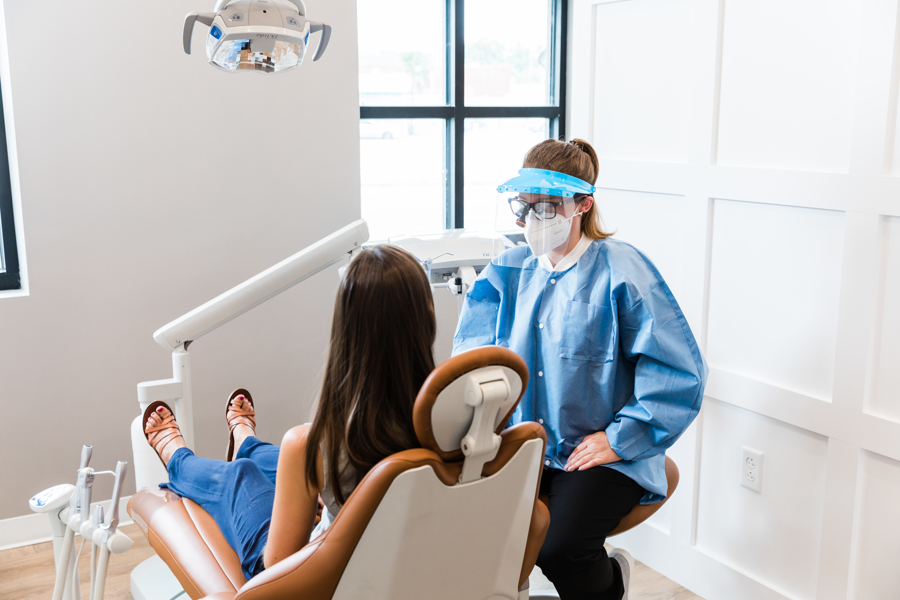Learn More About Frequent Dental Concerns Your Dental Expert Can Settle
Understanding frequent oral concerns is crucial for maintaining optimal oral health. Issues such as cavities, gum tissue condition, tooth level of sensitivity, halitosis, and dental caries are typical yet typically neglected until they become extreme. Dental experts possess the experience to detect and deal with these conditions, thereby preventing further difficulties. Regular dental brows through and individualized treatment plans can address these troubles properly, making certain a much healthier and brighter smile. What particular therapies do dental experts employ to battle these problems, and how can early treatment make a difference? The solution to these questions supply important understandings into guarding your oral wellness.
Cavities
Cavities, also known as tooth decays, are a widespread oral health and wellness issue caused by the demineralization of tooth enamel because of acid manufacturing from bacterial plaque. This process begins when germs in the mouth metabolize sugars and starches from food, creating acids that erode the enamel. Otherwise dealt with quickly, this disintegration can permeate much deeper into the tooth, influencing the dentin and ultimately the pulp, possibly causing severe pain and infection.
The beginning of dental caries formation often existing as white spots on the tooth surface, showing preliminary demineralization. As the procedure progresses, these places can turn into brown or black lesions, indicating much more extensive degeneration. Regular oral check-ups are critical for early detection, as dental caries in their nascent stages can be treated with remineralization strategies, such as fluoride treatments.
Dentists typically remove the corroded portion of the tooth and fill up the cavity with materials such as composite resin, amalgam, or ceramic. Precautionary measures, including excellent dental hygiene practices and nutritional adjustments, play an essential duty in reducing the danger of tooth cavities.
Periodontal Illness
While tooth cavities represent a significant concern for dental wellness, an additional essential concern that requires interest is gum disease. Also referred to as gum illness, periodontal disease is an inflammatory problem influencing the tissues surrounding and sustaining the teeth. It is primarily created by the buildup of plaque-- a sticky film of bacteria that bases on teeth.
Periodontal disease proceeds with stages, starting with gingivitis, defined by soreness, swelling, and hemorrhaging gums (eugene dentist). If left unattended, gingivitis can intensify to periodontitis, where the inner layer of the gum tissue and bone draw away from the teeth, forming pockets that come to be infected. With time, the toxic substances generated by the germs damage down the bone and connective tissue that hold teeth in place, potentially bring about tooth loss
Very early detection and therapy are important. Specialist dental cleansings and improved oral health practices, such as cleaning two times daily and flossing, can take care of gingivitis. For advanced phases, treatments might consist of scaling and root planing, prescription antibiotics, and even surgical treatments.
Normal dental examinations play a crucial role in protecting against and managing gum illness. Dental experts can recognize very early signs and suggest proper treatments, guaranteeing the upkeep of healthy and balanced gums and overall oral health and wellness.
Tooth Level Of Sensitivity
Tooth sensitivity affects countless individuals worldwide, providing an usual yet often stressful oral concern. This problem arises when the enamel, the outermost protective layer of the teeth, is compromised, revealing the underlying dentin. The dentin includes microscopic tubules that lead straight to the oral pulp, where nerves stay. When revealed to stimuli such as warm, cold, sweet, or acidic compounds, these nerves are activated, causing sharp discomfort or pain.
Numerous variables add to enamel disintegration and succeeding tooth level of sensitivity, consisting of aggressive brushing, acidic foods and drinks, gum tissue economic crisis, and bruxism (teeth grinding) Furthermore, dental procedures such as teeth lightening can momentarily increase sensitivity.
Negative Breath
An additional widespread oral concern that impacts individuals' daily lives is bad breath, medically called halitosis. Halitosis typically stems from inadequate dental health, which permits food fragments to continue to be in the mouth, cultivating microbial development.

Referrals might entail boosting dental health techniques, such as routine brushing and flossing, utilizing antibacterial mouthwashes, remaining moisturized, and attending to any type of dental problems. Effective management of bad breath not just boosts dental wellness however likewise considerably enhances quality of life.
Dental Caries

Stopping dental cavity involves a combination of great oral health techniques and regular oral check-ups. Cleaning teeth at the very least two times daily with fluoride tooth paste, flossing to remove plaque between teeth, and limiting the intake of sugary foods and drinks are important safety nets. Fluoride therapies, oral sealers, and specialist cleansings given by a dentist can also play a considerable function in fortifying enamel and stopping degeneration.
Dental practitioners can get rid of corroded tissue and recover the tooth with dental fillings made from materials such as composite resin, amalgam, or porcelain. By resolving tooth decay More Help quickly, dentists aid protect oral framework and function, making certain long-lasting oral health and wellness.
Conclusion
Addressing usual dental problems such as tooth cavities, gum condition, tooth sensitivity, foul-smelling breath, and dental cavity is critical for preserving optimal dental health and wellness and overall wellness. Dental experts possess the know-how to detect and treat these concerns efficiently, guaranteeing tailored take care of each individual. Regular precautionary measures and dental exams are vital in recognizing and handling these worries early, advertising a healthier and extra confident smile over a life time.
Tooth degeneration, likewise understood as dental cavities, occurs when the enamel, the outermost layer of the tooth, is eroded by acids generated by germs in the mouth. Brushing teeth at least twice daily with fluoride tooth paste, flossing to remove plaque in between teeth, and restricting the intake of sweet foods and beverages are crucial preventive measures.Addressing typical oral concerns such as cavities, gum disease, tooth sensitivity, negative breath, and tooth degeneration is essential for preserving optimum dental wellness and overall health.